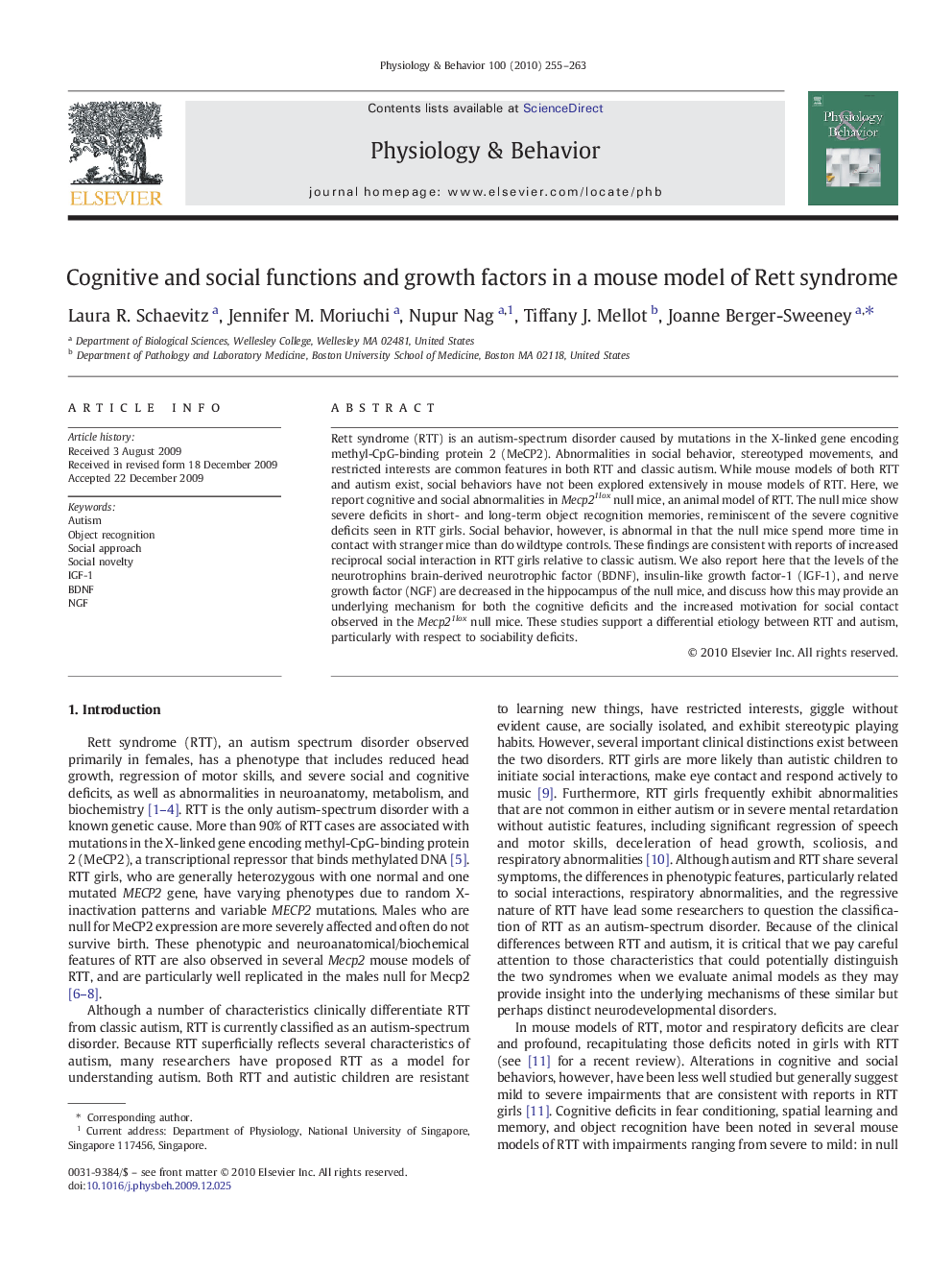| Article ID | Journal | Published Year | Pages | File Type |
|---|---|---|---|---|
| 2845065 | Physiology & Behavior | 2010 | 9 Pages |
Rett syndrome (RTT) is an autism-spectrum disorder caused by mutations in the X-linked gene encoding methyl-CpG-binding protein 2 (MeCP2). Abnormalities in social behavior, stereotyped movements, and restricted interests are common features in both RTT and classic autism. While mouse models of both RTT and autism exist, social behaviors have not been explored extensively in mouse models of RTT. Here, we report cognitive and social abnormalities in Mecp21lox null mice, an animal model of RTT. The null mice show severe deficits in short- and long-term object recognition memories, reminiscent of the severe cognitive deficits seen in RTT girls. Social behavior, however, is abnormal in that the null mice spend more time in contact with stranger mice than do wildtype controls. These findings are consistent with reports of increased reciprocal social interaction in RTT girls relative to classic autism. We also report here that the levels of the neurotrophins brain-derived neurotrophic factor (BDNF), insulin-like growth factor-1 (IGF-1), and nerve growth factor (NGF) are decreased in the hippocampus of the null mice, and discuss how this may provide an underlying mechanism for both the cognitive deficits and the increased motivation for social contact observed in the Mecp21lox null mice. These studies support a differential etiology between RTT and autism, particularly with respect to sociability deficits.
